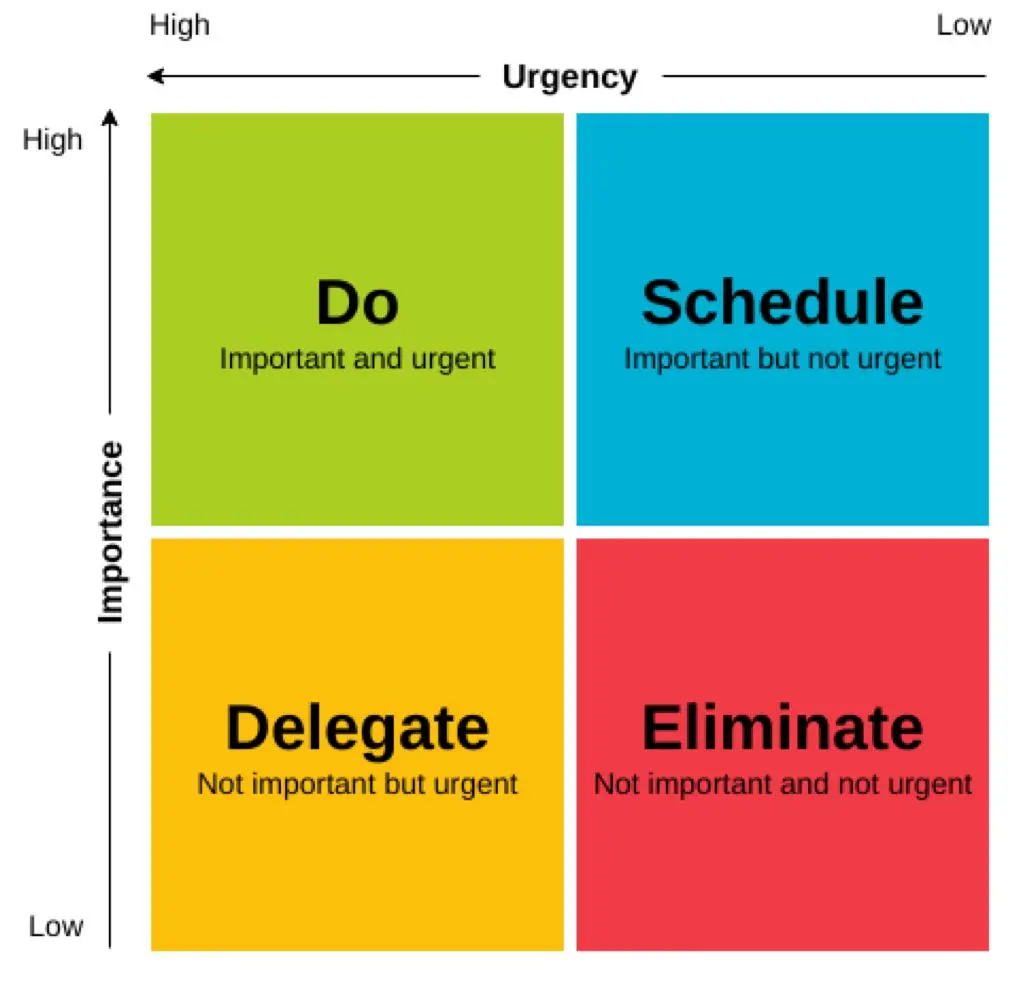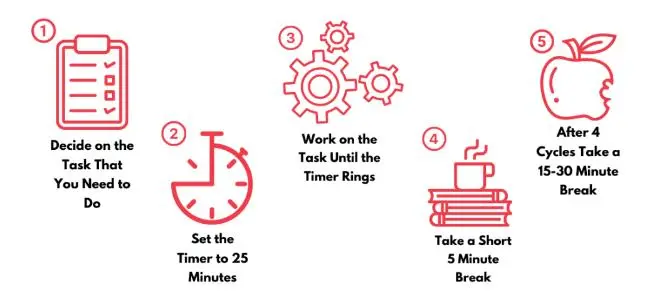Do you ever find yourself struggling to get everything done in a day? Are you constantly feeling overwhelmed and stressed out by your workload? The truth is, we all have the same 24 hours in a day, but some people seem to accomplish so much more than others. The key to their success? Effective time management. By prioritizing tasks, eliminating distractions, and making the most of every minute, you can increase your productivity and efficiency in both your personal and professional life.
In this article, we’ll provide you with practical tips and techniques for mastering time management. We’ll cover everything from creating a schedule and setting goals to delegating tasks and minimizing interruptions. Whether you’re a student, a professional, or just someone looking to get more out of life, our time management strategies will help you take control of your schedule and achieve your goals. So if you’re ready to be more productive and efficient, read on to discover our time management tips.

source: freepik
Why is good time management essential for success?
If you’ve been following our Survival Guide series of articles, you’ve probably noticed that there’s so much to do and time seems so short.
And it really is a short time, because in addition to work you have a private life to take care of, and before talking about what time management is, benefits and so on. you here already need to be aware that you will have to prioritize which activities and tasks will take your time.
Time management is a crucial skill for any leader or manager. To successfully lead your team, you must learn how to manage your time properly. When you manage your time well, you can tackle numerous jobs and projects at the same time and still feel in control of everything.
The 3 P’s of Time Management
Managing your time effectively is a crucial skill for success in both your personal and professional life. The process can be broken down into three key steps: planning, prioritizing, and performing. Each step plays an important role in ensuring that you are productive and efficient in your daily tasks.
The first step is planning. This involves creating a daily and weekly task list and organizing those tasks in order of importance. It’s important to be realistic when setting deadlines and consider the time required for each task. To help in this process, you can use time management tools such as a calendar or task list app.
The second step is prioritizing. Once you have your task list organized, it’s important to determine which tasks should be prioritized. Consider the importance and urgency of each task and give priority to the most urgent and important ones. This will help you stay focused and avoid wasting time on less important tasks.
The third step is performing. It’s time to put your tasks into action after you’ve planned and prioritized them. To minimize distractions and procrastination, divide major work into smaller, more manageable activities and keep focused on one activity at a time. It’s also important to take breaks throughout the day to prevent burnout and maintain focus.
In addition to these steps, it’s important to establish good time management habits, such as setting boundaries, delegating tasks, and avoiding multitasking. Remember, effective time management is a continuous process that may require adjustments over time, but with practice and dedication, you can achieve your goals and lead a more balanced and productive life.
Time management tips
- Prioritize your tasks: It is important that you define which tasks are most important and urgent and work on them first. A good technique is to create a list of daily tasks and organize them in order of priority.
- Set realistic deadlines: Make sure you and your team have realistic deadlines for completing tasks. This will help to avoid unnecessary stress and frustration.
- Delegate tasks: You don’t have to do everything yourself. Delegating tasks to other team members can be a great way to save time and build skills in your colleagues.
- Avoid multitasking: While it may seem like you’re being productive, actually doing multiple things at once can hurt the quality of your work. Instead, focus on one task at a time and complete it before moving on to the next one.
- Eliminate distractions: Distractions can often be a huge impediment to effective time management. Turn off your phone, avoid constantly opening your email, and keep your workspace organized and free of unnecessary objects.
Selecting which work to prioritize can be difficult, especially when you have a large number of chores to complete.
What techniques can I use to define which task should be done first
The most common technique is the prioritization matrix. This technique involves sorting tasks into four categories: urgent and important, important but not urgent, urgent but not important, and not urgent and not important.
Q1: Important and urgent
The first is the Urgency Quadrant, where you deal with unforeseen events, set aside your responsibilities, and focus on resolving urgent issues.
Although it’s super stressful, many people can spend their entire lives in this quadrant, letting life’s problems take over. Spending too much time in this quadrant will not allow you to grow much.
Q2: Not urgent but important
This quadrant is not as urgent as the first, but the tasks are just as important. Essentially, they are important but not urgent. They don’t require immediate action and don’t interfere with your deadlines and other tasks.
In this quadrant, you have the freedom to breathe a little, take your time, and do your work more effectively and productively.
Q3: Urgent but not important
In this quadrant, you’ll find less critical tasks. All those little pressing issues that pop up just to take away from your quality work time.
It could be meetings, phone calls, emails or interruptions that don’t allow you to be productive.
Ultimately, you want to spend as little time as possible in this quadrant. It’s full of counterproductive tasks that don’t contribute much to your work, goals, and productivity.
Q4: Not urgent and not important
Quadrant four is not urgent, not important, which means it’s just a complete waste of time. As you spend more time here, all your energy is drained, and you can end up in procrastination activities like checking social media and randomly surfing the internet.

Another method is the Pomodoro technique, which entails working for a fixed amount of time, usually 25 minutes, followed by a short rest period. This technique can help you focus on a specific task and complete it quickly.

Whichever strategy you use, it is critical that you are aware of your priorities and deadlines in order to properly manage your time and achieve your goals. Always remember that time management is a skill that can be improved with practice and patience.
What to do to avoid distractions
Distractions are one of the main causes of lost productivity at work. Fortunately, there are some simple things you can do to minimize distractions and stay focused on your tasks.
The first thing to do is identify what your main distractions are. It could be your cell phone, social media, conversations with co-workers or even outside noise. Once you identify these distractions, you can take steps to minimize or eliminate them altogether.
An effective way to avoid distractions is to set a specific time to check your emails and text messages. This will allow you to focus on your tasks without constant interruptions. You can also mute notifications on your cell phone to avoid unnecessary distractions.
Another useful technique is blocking websites or apps that might distract you. There are many browser extensions available that allow you to block specific websites for certain periods of time. This can help you focus on your tasks and avoid wasted time surfing the internet.
Also, it’s important to keep your work environment organized and clean. A cluttered desk can be a huge source of distractions, and it can be hard to focus on your tasks when you’re surrounded by clutter. Make sure your workspace is comfortable and free of clutter.
Finally, try to keep a regular schedule for your tasks and projects. This can help you establish a routine and stay focused on your most important tasks. Remember, the key to avoiding distractions is to be mindful and proactive. With a little practice and discipline, you can minimize distractions and increase your productivity.
Conclusion
In conclusion, managing your time effectively is essential for a balanced and productive life. With the right techniques, you can establish a more organized routine and maximize efficiency in work and personal tasks. From setting goals and priorities to avoiding distractions and delegating tasks, there are many ways to manage your time more effectively.
Remember that time management is not a one-time process – it’s an ongoing habit that requires constant effort to maintain and improve. So start implementing these tips and techniques today to reach your goals and live a more balanced and productive life.
FAQs
We have here on our blog a complete guide for managers that will help you achieve a successful career!
Feel totally free to leave a comment below, bring suggestions for improvements to the content.
Other references:
https://www.skillsyouneed.com/ps/time-management.html
https://www.managementstudyguide.com/time-management.htm
Thank you and see you!